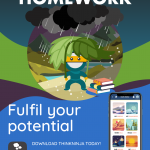Geography
Geography is an extremely topical subject in today’s curriculum. Geography is fundamental to understanding the why, how and when of many issues occurring in the world today – from climate change to natural disasters.
When we look at any issue with the balance and scrutiny that geographical study offers, we move beyond the media hype or political spin. Geography allows us to see the world more clearly.
The Bay House geography department has been awarded the ‘Secondary Geography Quality Gold Mark’, Centre of Excellence accreditation from the Geographical Association.
Key Stage 3
At the beginning of Y7 you will be focusing on the local area and how this is shaped, as well as practising fundamental map skills. We will then move on to the wider world, looking deeper into how human influence can have an impact on the environment through activities such as Tourism. In the spring term, we will continue to focus on the interactions between human and physical geography in our exploration from Pole to Pole. In the summer term we then investigate the processes that occur within rivers and how these can be affected by humans. Pupils will then complete the year in their investigation into industry and the impacts of this in low income countries.
In the Autumn term Y8 pupils begin with Population. This explores themes of development and how this can have an impact on a country’s population, as well as innovative new ideas of sustaining our ever growing global population. They will then go on to explore the causes and effects of Our Wild Weather in the UK, applying this to recent case studies such as Storm Eunice (2022). Pupils are then required to think critically about the opportunities and challenges of megacities across the world and their sustainability. We complete the year with the investigation into Dynamic Coasts and the processes that occur along these, ending with a field trip to Stokes Bay Beach.
Pupils in Y9 start exploring the shaping of our world through concepts such as plate tectonics and Continental Drift Theory, where they are required to evidence their knowledge using theory to suggest reasons for the processes that are occurring. The topic of Development is investigated through evaluating the causes and impacts of uneven development across the world. Climatic hazards are investigated using current case studies, looking deeper into how these will lead to further issues in the future.
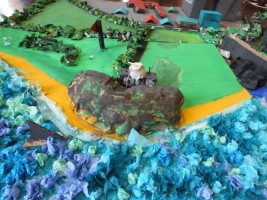
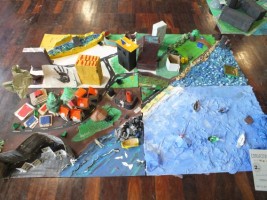
Key Stage 4
We follow the GCSE AQA A syllabus starting at Christmas of Year 9, which provides a broad base of physical and human geography. The topics include; Natural hazards, urban issues and challenges, the changing economic world, the living world, the challenge of resource management as well as the physical geography of the UK. Students complete two pieces of geographical fieldwork. One assessing the environmental quality of an area in Portsmouth and the other a beach study at Christchurch Bay.
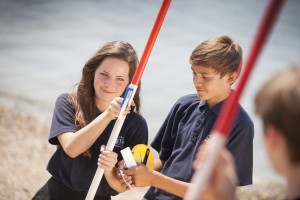
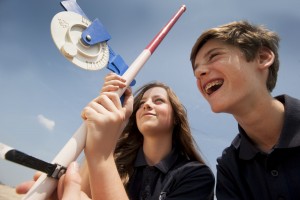
Sixth Form
Geography is a very popular and successful choice at A Level as well, and likewise we follow the AQA syllabus. The vast majority of new students have achieved at least a grade 5 at GCSE. Some topics are developments of those studied at GCSE, whilst others such as Changing places and Water and the carbon cycle will be new to most students. Several students go on to study geography at university each year.
Fieldwork is an important part of studying geography in the sixth from and the department runs a number of visits each year. Students in the sixth form have the opportunity to experience local fieldwork in nearby Rowner and West Wittering’s, in addition to International visits to Iceland and Sicily. Students are also given the chance to get a taste of future student life by attending evening lectures hosted by the Hampshire Geographical Association at local colleges and universities.

The subject helps students to develop a range of skills within one subject area – from problem solving to decision making. It also provides students with the chance to assess the political, economic, social and environmental influences on the world today.
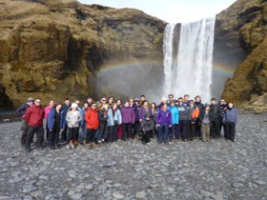
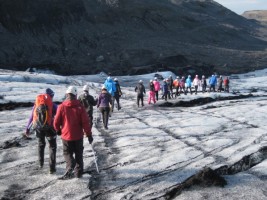
Don’t just take it from us…
“I love geography because the teachers motivate you to do well” (JW, Y11)
“Geography will help me in my future career” (TE, Y11)
“The reason that I like geography is because it’s interesting and fun to learn. I’m also very excited about the potential trips to Iceland and Morocco at A- Level” (AA, Y11)
“I love geography because I get to learn about the planet” (LP, Y8)
“Geography helps me find out how an ever changing world works” (OW, Y11)
“Geography is very fun because we get to do outdoor learning and the home learning is creative” (TS, Y9)
“I love geography!” (AE, Y9)
“I like geography because I get to find out about new things, including how the earth works and how volcanoes lead to the world we see today” (JL, Y9)
“Geography allows me to explore and learn about different cultures” (TC, Y11)
“I like geography because you get to learn about different cultures and how they respond to natural disasters and how this can lead to some beautiful things in reality” (BG, Y9)















